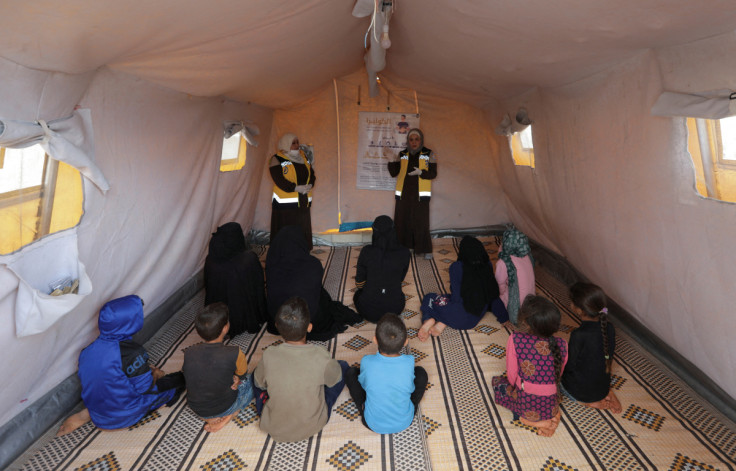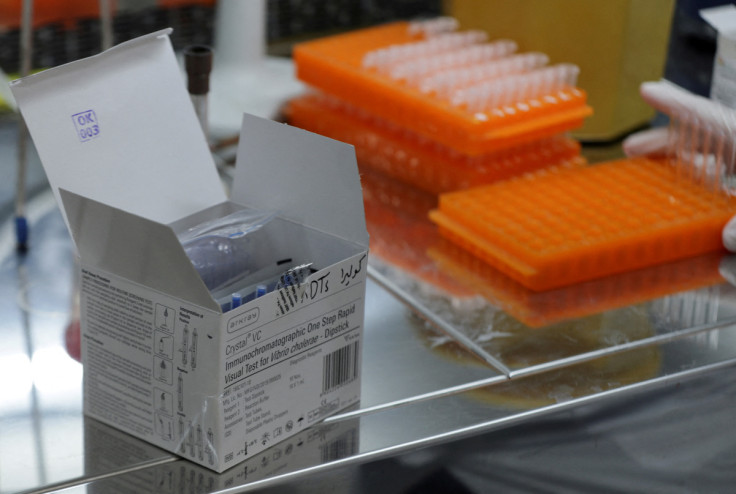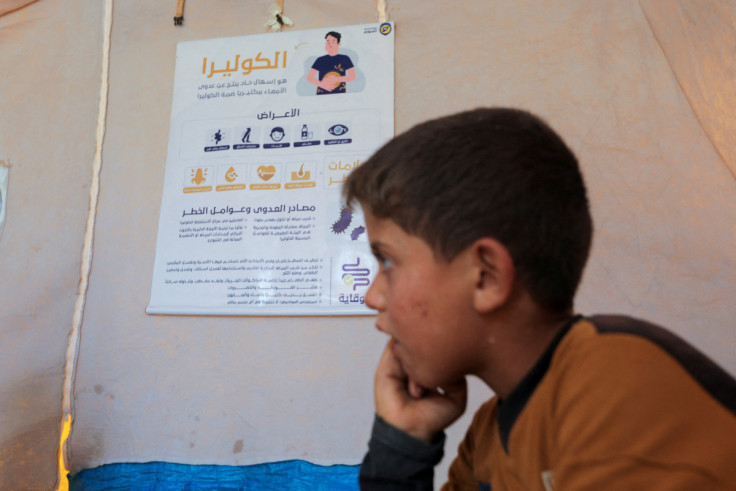Aid Workers In Syria Fear Cholera Spread If Cross-border Support Halted

Humanitarian workers operating in the last opposition-held part of Syria fear a cholera outbreak sweeping the region will deepen further if the United Nations is forced to stop aid deliveries across the border from Turkey.
The area's 4 million people live in dire conditions and rely heavily on the food and medicine that has been brought across the border since a 2014 U.N. Security Council resolution allowed such deliveries despite the Syrian government's objections.
The Security Council is due to vote on Monday, a day before the current authorisation expires, on renewing it for a further six months. Health workers in the zone, which comprises most of the province of Idlib and parts of Aleppo province in northwestern Syria, fear the consequences should Syria's ally Russia veto it or place further restrictions on the programme.
"The capabilities of the health sector are already very weak, and we suffer from an acute shortage of medicines, medical supplies and serums," said Dr. Zuhair Al-Qurat, the head of Idlib's health directorate.
"Stopping cross-border aid will have a multiplier effect on the cholera outbreak in the region," he told Reuters.
Though diplomats say Russia has indicated it will allow the authorisation's renewal, uncertainty remains.
Russia's deputy U.N. Ambassador Dmitry Polyanskiy told Reuters the implementation of the current resolution - adopted in July - was "far from our expectations" and a final decision would be made by Moscow on Monday.
Top U.N. officials, including aid chief Martin Griffiths, have warned that ending the operation would be "catastrophic".
Idlib has recorded more than 14,000 suspected cholera cases and Aleppo more than 11,000 since the outbreak began in September, making them the second and fourth worst-hit in Syria respectively.
They are particularly vulnerable because they rely on water from the Euphrates river to drink and irrigate crops, and because the health sector in opposition-held Syria has been battered by more than a decade of war.
CLEAN WATER
The U.N. authorization allows agencies to bring in hygiene kits, chlorine tablets to disinfect water and equipment for eight cholera treatment centres with more than 200 beds. Non-governmental groups also truck safe drinking water to homes.
Without it, international NGOs would not have international legal cover and could not keep up with the pace and quantities of aid needed, three aid workers told Reuters.
That is in part because large donor countries trust that aid brought in through the U.N. will not be politicized, unfairly distributed or seized by hardline armed groups.
The chlorine used to disinfect water presents a particular challenge. The chemical has been used in Syria as a weapon of war, prompting concerns among donors that would slow down its procurement for cholera treatment by humanitarian organizations other than the U.N., the aid workers said.
"These centres and health facilities would be suspended. Supplies ... transhipped specifically for the cholera pandemic in the northwest would be interrupted - fluid, serums, injections, oral medications," said Mohammad Jasem, the International Rescue Organization's northwest Syria coordinator.
Even if the resolution is renewed for another six months, health workers have already suffered from short-term renewals, leaving them unable to plan ahead, said Osama Abou el-Ezz, the head of the Syrian-American Medical Society (SAMS) in Aleppo.


© Copyright Thomson Reuters 2025. All rights reserved.





















